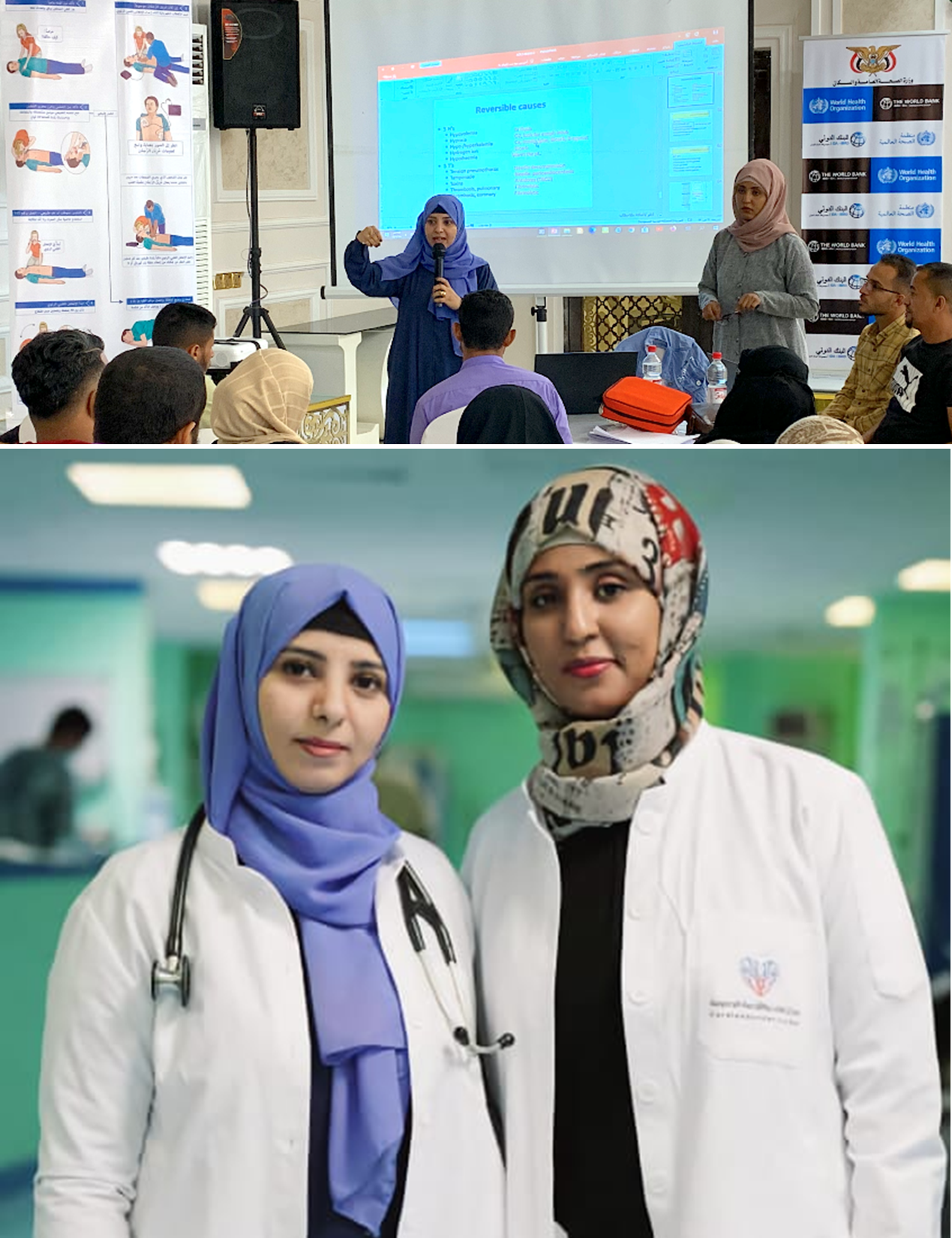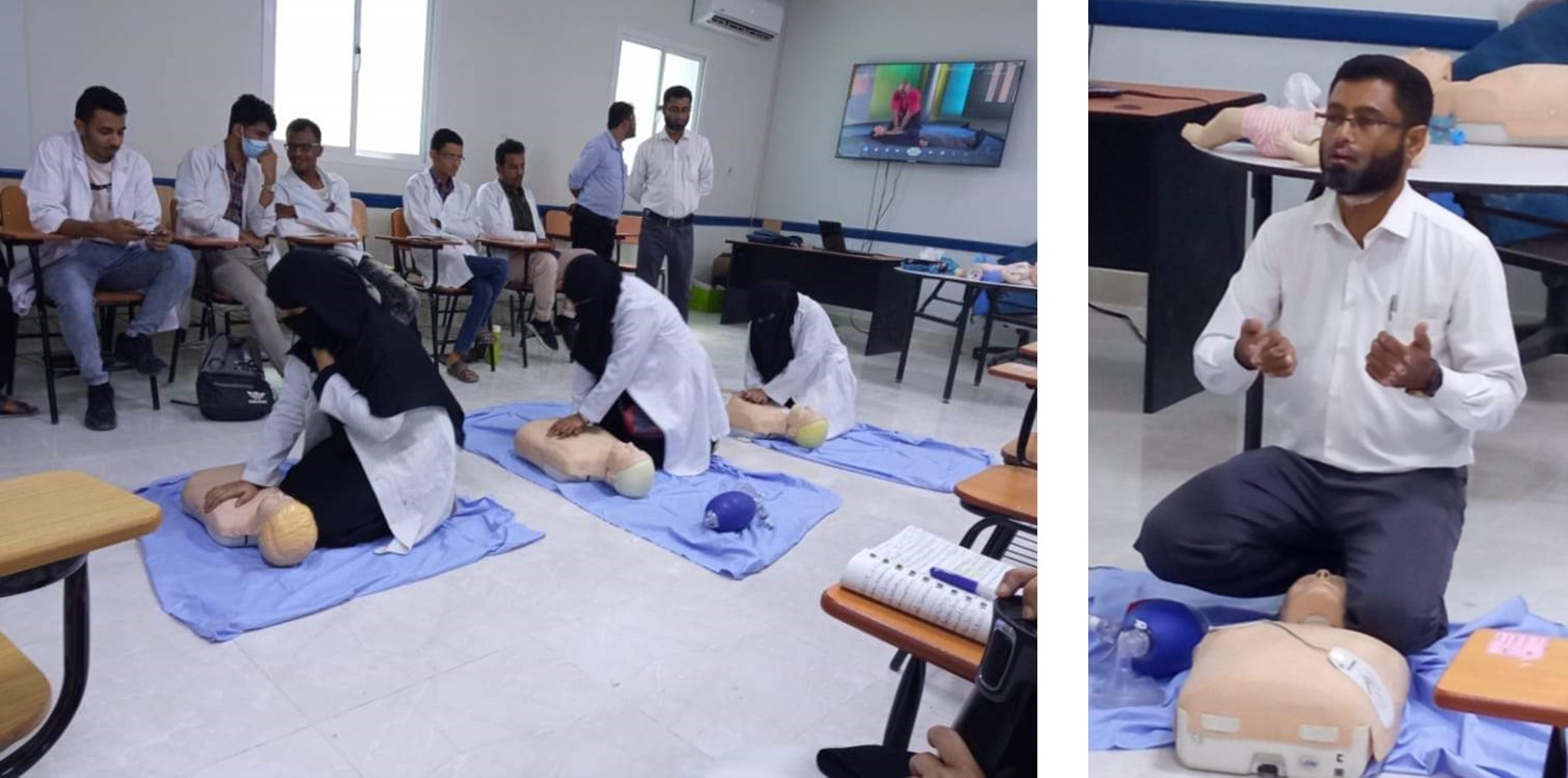
Taizz | Sayoun, 22 November 2022 – Participants from WHO’s recent basic and advanced life support trainings in Yemen are taking matters into their own hands to rollout these lifesaving skills to their peers. Among the more than 1200 health workers trained, below are some success stories of health workers playing critical roles in improving delivery of lifesaving care for the Yemeni people. The training was conducted with the World Bank’s support via the Yemen COVID-19 Response Project (YCRP).
Dr Raef is working in the Al-Jamohoury Hospital Cardiac Centre and is a teacher at Taizz Faculty of Medicine and Health Sciences. She successfully completed the 9-week national critical care training and recently got an opportunity to train in basic life support and advanced cardiac life support courses (for the first time), under the supervision of master trainers.
When Dr Raef and her colleague Dr Zahra returned to their governorate, Taizz, they were thinking about how to promote knowledge and skills for a long-term future and sustainability for the next generations. They came up with 4 ways forward:
They convinced the management of Taizz Faculty of Medicine to embed basic life support and advanced cardiac life support into the main curriculum of the ICU and anesthesia module.
Dr Zhara started teaching the theoretical part of basic life support and advanced cardiac life support in Taiz Faculty of Medicine.
Dr Raef delivers the practical part in Al-Jamohoury Hospital Taizz halls and cardiac-ICU for fifth-grade medical students with minimum available tools.
They keep communicating with Taizz governorate health office towards procuring more resources for an effective educational process.
Dr Nabil participated in the basic life support training of trainers in Aden. He passed the exam aligned with international standards to be a basic life support provider and instructor. Dr Nabil used his skills and knowledge to conduct a basic life support provider course at Sayoun University in Hadramaut Governorate targeting medical college students. In doing so, he complied with international standards as much as possible in a low-resource setting. Dr Nabil will have the chance to be a co-facilitator in WHO Yemen’s basic life support rollout plan.

Related links
Enhancing basic and advanced life support skills among Yemen’s health workforce
Texts from the field: life-saving impacts of basic and advanced life support training in Yemen








